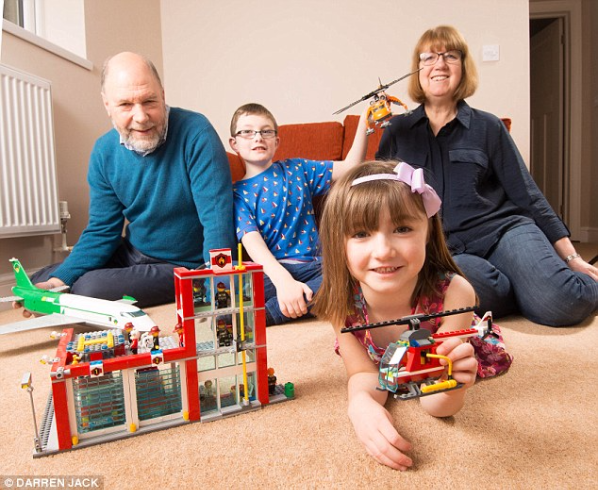How to look after loved ones when you are gone and save tax
How to look after loved ones when you're gone: From wills to trusts and lasting power of attorney, the essential things you need to know and do
There are only two things certain in life – death and taxes.
Yet despite these unavoidable truths more than two-thirds of us fail to do the sensible thing and write a will.
Here we reveal what you need to know about wills, inheritance and the importance of lasting power of attorney
Writing a will
Death is not something many people like to think about but neither is the idea the taxman might pocket some of our money when we die.
Seven out of ten people die intestate – without a will. This enables the Treasury to trouser more than £50 million a year that might otherwise have gone to help our loved ones.
Yet the cost of having a basic will drawn up by a professional is usually no more than £250 – with couples setting up a joint will paying about £400.
It can take less than an hour to complete but you should put aside time beforehand to reflect on your final wishes – how you might like your estate to be carved up, choice of guardians to look after any children left behind as well as possible executors you can trust to handle all the paperwork upon your death.
Jonathan Francis 32, and wife Jade 30, from Haverfordwest in Pembrokeshire used Adept Legal Services to write up their joint wills because they wanted to ensure their offspring, would be well looked after and treated equally upon their death.
Jonathan said: ‘You hear of stories where families fall out over arrangements when a Will hasn't been written – causing dreadful family rifts that never heal.
‘Fortunately, this is not the kind of situation that is likely to happen in our family but it just goes to show the importance of having a will – and getting it drawn up professionally. My wife and I want to make sure our assets are shared fairly.’
In drawing up the wills the couple were also forced to decide on possible guardians if they died before their children had reached 18 – and to ensure any money for the children would be kept in trust until they turned 21.
Just deciding who you would like to look after your children is not enough. You must put it down in a will. Otherwise they might go into foster care while the law courts decide what to do. It has been known for long-lost relatives to crawl out of the woodwork and offer to look after children.
Their real motive of course is to get their hands on your estate rather than looking after the children.
Use of trusts
You can also safeguard against unexpected future events spoiling your final wishes by setting up a trust.
These legal agreements come in a variety of forms and can help lower potential inheritance tax bills as well as give extra guarantees for loved ones that they will be looked after following your death. You can pay anything from £200 to £2,000 to set up an arrangement – depending on the complexity of the trust.
Baos says: ‘You do not have to be super-rich to consider a trust – it is a prudent measure for many families.
‘For example, if you are married consider what might happen to your partner should you die first – can you expect them to stay single forever? Chances are you might even have an idea who the future wife – or husband – could be.’
He adds: ‘Even if you are happy for a partner to remarry, be aware it could have a financial impact on your children. Unless you set up a special trust it is possible their future spouse could pocket your share of the estate when your former partner dies – and cut the children out of the will.’
If you die without a will – dying intestate – your spouse or civil partner does not automatically inherit all your estate.
They have a right to your personal items along with the first £250,000 of any assets that you have left behind – including property and any savings – if you have children. Anything left over is then split equally with 50 per cent going to your surviving spouse and the other half equally divided between offspring.
If you do not have any children then the surviving spouse or civil partner gets your personal belongings plus the first £450,000 of any estate.
The remainder is also then split in half – with your partner getting the first half of anything left over while the remainder will be shared out between other surviving family members – which could include parents, siblings, nephews and nieces.
If you are in a relationship where you were living together but not married or in a legally recognised civil partnership then the survivor could end up getting nothing.
If you have divorced or the civil partnership has ended before your death then any surviving partner is unlikely to inherit anything under the intestacy rules.
Another problem with dying intestate is that money will be eaten away in legal fees, deciding what to do with your estate and how money should be divided up.



